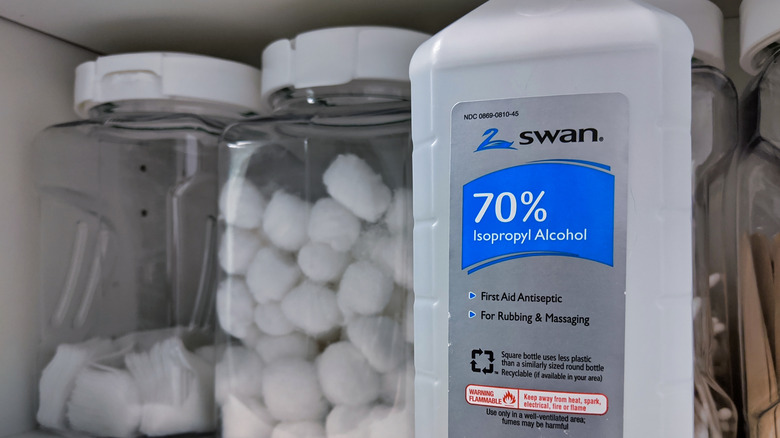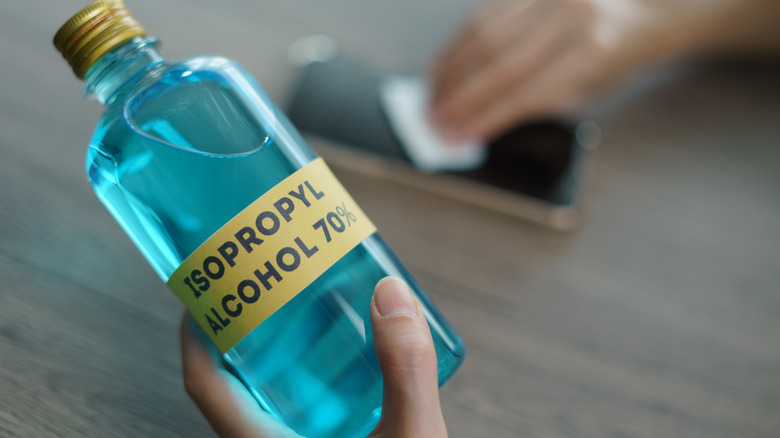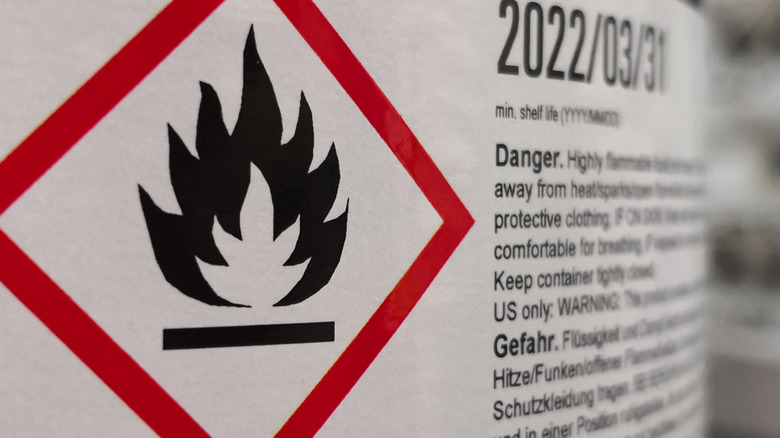Think Twice About Cleaning With Rubbing Alcohol In An Area Like This
Rubbing alcohol is a great multi-purpose item to keep in the home. Its most natural use is cleaning and disinfecting minor cuts, but it can also be a powerful way to clean and sterilize surfaces around the house, whether you're using it straight or as an ingredient in your own homemade cleaner. Before you embark on any spring cleaning, you'll want to consider where exactly you'll be using that bottle of rubbing alcohol. The key is to keep your area well-ventilated. Why?
Rubbing alcohol is a diluted, and easier to say, form of a hazardous chemical called isopropyl alcohol. Isopropyl alcohol is quick to evaporate, and according to the New Jersey Department of Health, breathing in the fumes can irritate the throat and nose. Though rubbing alcohol is less potent than pure isopropyl alcohol, it should still be treated like any other chemical.
Because of its toxicity, it's best to open any windows while using rubbing alcohol. If you're cleaning in a room without windows, say a bathroom or the laundry room, flip on any vents or ceiling fans. You should keep the door open, too.
Types of rubbing alcohol
When you're shopping for rubbing alcohol at the store, you may notice a percentage on the bottle. That percentage indicates the amount of pure isopropyl alcohol found inside. For example, a bottle that says 60% will be made up of 60% isopropyl alcohol and 40% water and other ingredients.
Dr. Sarah Pickering Beers of the Cleveland Clinic says of these rubbing alcohol strengths, "Lower concentrations aren't as good at killing germs. But very high concentrations can be harsher when used on the skin. The 70% variety tends to be a good choice for most household uses."
If you do choose a bottle with a higher percentage on the label, take extra care in ventilating your space when cleaning with the product because it will have more pure isopropyl alcohol. In addition to an irritated throat or nose, the New Jersey Department of Health says frequent exposure to isopropyl alcohol can cause headaches, dizziness, and other health issues.
Other precautions for cleaning with rubbing alcohol
You'll also want to avoid any open flames when using rubbing alcohol. As with any type of alcohol, Dr. Beers reminds us via Cleveland Clinic that isopropyl alcohol is flammable, and even diluted versions can be a fire risk. Depending on your bottle's percentage of isopropyl alcohol, even sources of intense heat without an open flame can be dangerous, says Healthline. So, if you plan to clean the kitchen with rubbing alcohol, do so before firing up the stovetop or oven for dinner.
It's best to keep rubbing alcohol away from any areas that contain or have recently been cleaned with bleach, as well. The fumes from bleach and isopropyl alcohol are toxic on their own, and when combined, those toxicity levels rise greatly. The Georgia Department of Public Health says together, the two chemicals create chloroform, and chloroform can attack your eyes, lungs, and liver.


